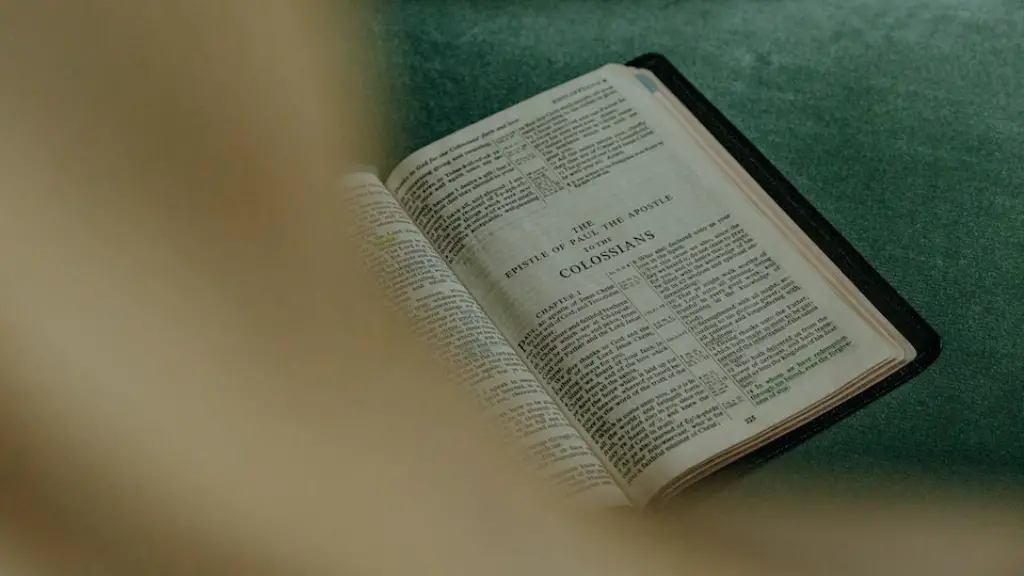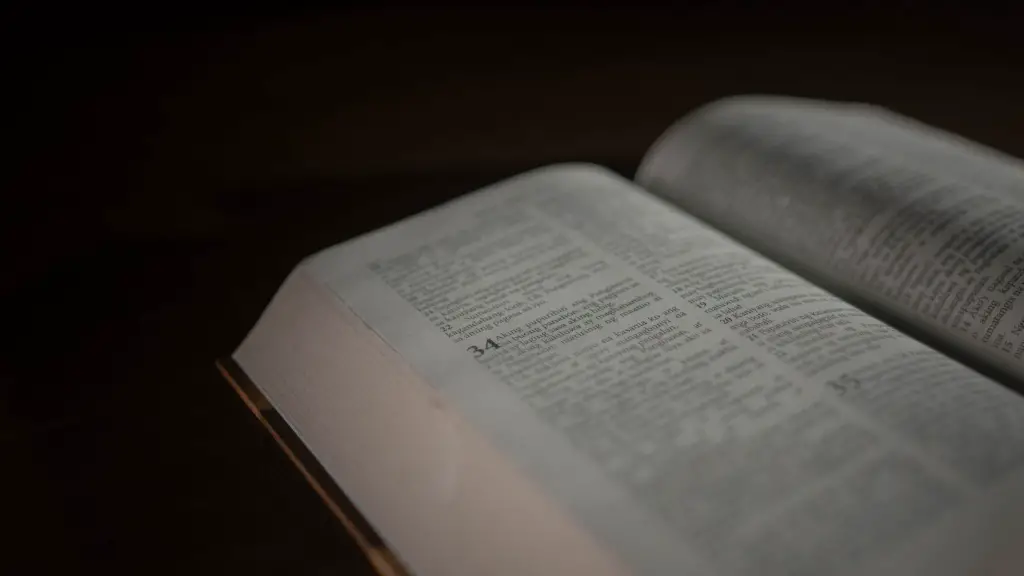Introduction
The Bible is a sacred book for many religious people, providing guidance for living and a moral compass. It also addresses controversial topics, such as the consumption of alcohol. Different interpretations of the Bible often result in different stances on drinking alcohol. What does the Bible actually say about consuming alcoholic beverages? This article will explore the various perspectives on this debatable subject, providing an insight into how certain people may view alcohol consumption.
The Bible’s Perspective
The Bible itself does not condemn alcohol consumption in all forms. Proverbs 31:6-7 states “Give strong drink unto him that is ready to perish, and wine unto those that be of heavy hearts. Let him drink, and forget his poverty, and remember his misery no more.” This suggests that the Bible condones alcohol consumption in moderation, as an aide to people who are struggling emotionally. On the other hand, Proverbs 20:1 states “Wine is a mocker, strong drink is raging: and whosoever is deceived thereby is not wise.” In the Kingdom of Judah, the kings were forbidden from drinking alcohol before governing meetings or battles. The Bible doesn’t entirely condemn drinking, but suggests that it can lead to intoxication and clouded judgement.
Scientific Studies
A recent scientific study examined the effects of moderate drinking from a religious perspective. Several biblical scholars examined the “abstinence imperative” – the idea that Alcohol is impermissible under any circumstances. The results of the study indicated that moderate drinking can increase subjective well-being, promote healthier lifestyle choices, and lead to better mental and physical health. It concluded that a balanced approach to alcohol consumption can indeed bring spiritual, mental and physical health benefits.
Christian Viewpoints
Christian perspectives on alcohol consumption vary greatly. Some denominations, such as the Salvation Army, are entirely abstinent and prohibit any kind of alcohol use. Others, such as the Catholic Church, view drinking in moderation as acceptable, but condemn drunkenness as immoral. In both cases, religious leaders suggest that we understand the effects of alcohol and be responsible in our drinking habits.
Temperance Movements
The 19th Century saw the emergence of various temperance movements, aimed at reducing the abuse of alcohol. These movements placed the blame on liquor manufacturers and the government for failing to restrict the sale of alcohol. Religious groups such as the Methodists preached the importance of “total abstinence” from alcohol and worked to get liquor taxes repealed and closed down saloons.
Modern Day Approaches
In modern day society, the attitudes towards consuming alcohol differ greatly from the days of the temperance movements. The legalization of drinking has granted society more freedom but with it, an increased awareness is needed of the potentially harmful effects of alcohol. The goal should be to educate people on the bodily and social consequences of using alcohol. Churches and Christian ministries continue to serve a vital role in spreading this message and reminding people of the importance of personal responsibility in regards to drinking.
Psychological Effects
Excessive consumption of alcohol can have serious psychological effects. Studies have indicated that binge drinking can impair cognitive functions and increase the risk of depression, anxiety and suicide. Additionally, alcohol consumption can often be a form of coping with negative emotions, leading to a vicious cycle of drinking and emotional distress.
Physical Effects
The negative physical effects often associated with the consumption of alcohol are well-documented. These include impaired motor and cognitive functions, high blood pressure and various forms of cancer. The body can also become tolerant and dependent on alcohol, leading to an addiction that can be hard to break.
The Role of the Government
The government plays a key role in the regulation of alcohol consumption and enforcing laws against underage drinking. They are responsible for setting and enforcing drinking age requirements, regulating alcohol availability and taxation, and creating health and safety laws regarding drinking. Governments also work with religious and community organizations in order to increase awareness of the risks associated with drinking alcohol.
Religious Organizations
Religious organizations are actively involved in discouraging alcohol abuse and creating awareness about the potential dangers of consuming too much alcohol. They provide support and information to those with drinking problems and offer counseling and spiritual guidance. Churches also provide a safe space for individuals to talk about the issue, creating an open and supportive discussion about the dangers of alcohol and how to regularly consume it in a responsible manner.
Youth and Alcohol Abuse
Young people are particularly vulnerable to the lure of alcohol as they search for freedom and acceptance in their teenage years. This can often lead to peer pressure and an excessive consumption of alcohol. Parents, religious leaders and teachers must be aware of the warning signs of potential drinking problems and take appropriate action to protect their young people.
Conclusion
The Bible is a sacred book that offers guidance on many issues. It does not completely condemn the consumption of alcohol but encourages the responsible and moderate use of it. The goal should be a balanced approach that takes into account both the physical and psychological effects of drinking. The government and religious organizations must continue to take an active role in creating awareness about these potential risks, particularly for our youth.



